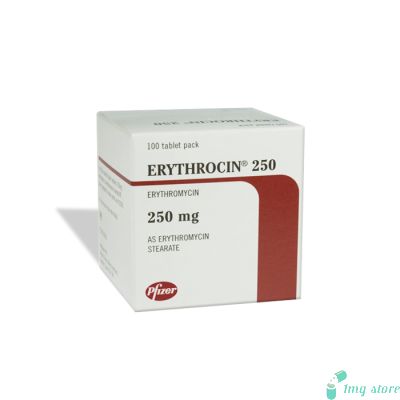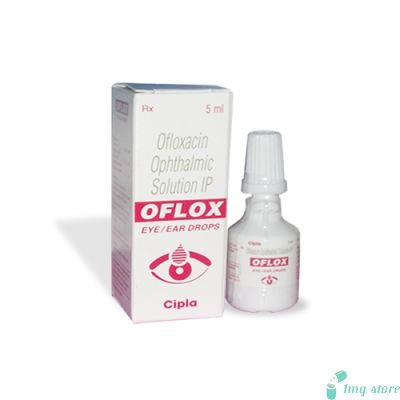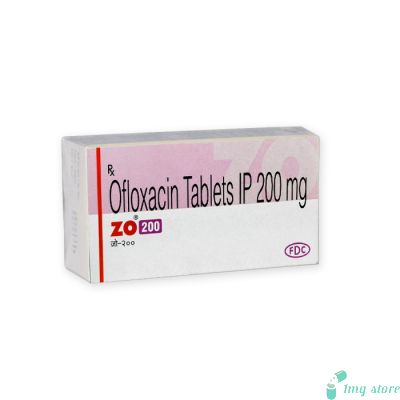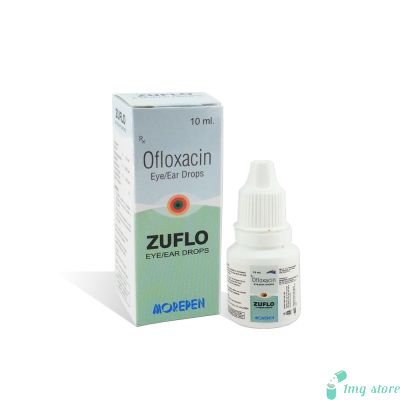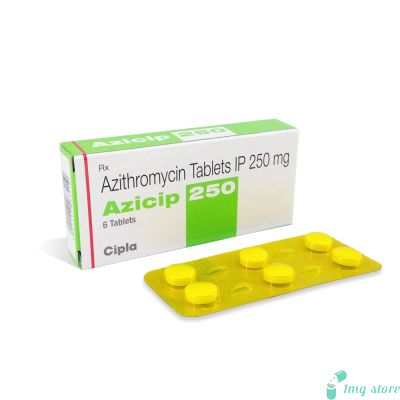Althrocin Tablet (Erythromycin)
Buy Althrocin Tablet (Erythromycin), Althrocin contains the active ingredient erythromycin, which is an antibiotic known as macrolides. Eryped is another brand name for Erythromycin.
Althrocin Tablet (Erythromycin) is an Antibiotic
Erythromycin is a widely used antibiotic medication that belongs to the macrolide class of antibiotics. It is available in various formulations, with Erythrocin and Eryped being two of the most common brand names for Erythromycin tablets. Erythromycin is a versatile antibiotic known for its efficacy against a wide range of Bacterial Infections. It is often prescribed by healthcare professionals to treat various conditions, and its mechanism of action involves inhibiting bacterial protein synthesis. Eryped is another brand name for Erythromycin.
Althrocin is used to treat Bacterial Infections in various parts of the body, such as the respiratory tract, skin, and soft tissue. Consumption of Erythromycin works by stopping the growth of bacteria, which helps to clear up the infection. It is to be taken with or without food as directed by your healthcare provider. By seeing the severity of the infection the dosage and length of treatment will depend.
It is important to finish the full course of treatment, even if you start feeling better before completing the medication. If you stop taking Althrocin 250 too soon, the infection may not be completely cleared, and the bacteria may become resistant to the medication.
Erythromycin Dosage Information:
Dosage recommendations for Erythromycin Tablets (Erythrocin) may vary depending on the specific condition being treated, the patient's age, weight, and overall health. It is crucial to adhere to the prescribed dosage and follow the healthcare provider's instructions. Erythromycin tablets are typically taken orally with or without food.
For adults and pediatric patients:
Erythrocin (Erythromycin) Tablets: The usual dosage for adults is 250-500 mg every 6 hours, or as directed by the healthcare provider. For pediatric patients, the dosage is adjusted based on body weight and the severity of the infection. It is important to complete the full course of treatment even if symptoms improve before completion.
Erythromycin Tablets for Acne:
Erythromycin tablets are sometimes prescribed by dermatologists to treat moderate to severe acne. The antibiotic properties of Erythromycin help reduce the growth of acne-causing bacteria on the skin. It is typically used when other acne treatments have not been effective and should be taken under medical supervision to ensure optimal results and minimize potential side effects.
Erythromycin Tablets for Respiratory Infections:
Erythromycin tablets are a common choice for treating respiratory infections like bronchitis, pneumonia, and sinusitis. They work by targeting the bacteria responsible for the infection, inhibiting their growth, and helping to alleviate symptoms. However, it's important to take the full prescribed course to ensure complete eradication of the infection and to prevent Antibiotic resistance.
Erythromycin Tablets OTC:
Erythromycin tablets are not typically available over the counter (OTC) in most countries. A doctor's prescription is usually required to obtain Erythromycin tablets due to the potential for side effects and the risk of antibiotic resistance. It's important to consult a healthcare professional before using any Antibiotics, including Erythromycin, to ensure appropriate treatment and dosage.
Where to Buy Erythromycin Tablets?
If you are looking to purchase Erythromycin tablets, you can consider visiting our website, 1mgstore.com. We offer a convenient platform where you can explore a range of medications, including Erythromycin tablets, with the guidance of licensed healthcare professionals. Remember, obtaining a prescription from a doctor is essential before purchasing and using Erythromycin or any other prescription medication.
By following the precautions, you can ensure that you get the most benefit from Althrocin Tablet (Erythromycin)
- Althrocin should to taken as prescribed by your doctor. Do not take more or less of the medication than recommended, and do not stop taking it before the prescribed course is complete, even if your symptoms improve.
- Inform your doctor about any other medications or supplements you are taking before starting Althrocin as it may interact with certain drugs, including blood thinners and some cholesterol-lowering medications.
- Althrocin/Eryped should be used with caution in patients with liver or kidney problems, as the medication is processed by these organs.
- If you experience any unusual symptoms, such as severe diarrhea or abdominal pain, while taking Althrocin contact your doctor immediately, as it may be a sign of a serious side effect.
- Althrocin should be stored in a cool, dry place away from direct sunlight and out of reach of children.
- Do not take Althrocin if you are allergic to Erythromycin or any other macrolide antibiotics.
Some of the specific indications for Eryped/Althrocin Tablet (Erythromycin) include
- Respiratory infections: Althrocin Tablets can be used to treat respiratory infections such as pneumonia, bronchitis, and pertussis (whooping cough).
- Skin infections: Althrocin Tablets can be used to treat skin infections such as cellulitis, impetigo, and acne.
- Ear infections: Althrocin Tablet can be used to treat ear infections such as otitis media.
- Gastrointestinal infections: Althrocin Tablet can be used to treat gastrointestinal infections such as campylobacteriosis and traveler's diarrhea.
- Sexually transmitted infections: Althrocin Tablet can be used to treat sexually transmitted infections such as chlamydia and syphilis.
- Dental infections: Althrocin Tablets can be used to treat dental infections such as periodontitis and dental abscesses.
Note: Althrocin Tablet should only be used to treat bacterial infections and is not effective against viral infections such as the common cold or flu. Additionally, Althrocin Tablets should only be used as directed by a healthcare professional.
Crucial Side Effects to Be Observed When Using Althrocin Tablet (Erythromycin)
- Eryped
- Nausea and vomiting
- Diarrhea
- Abdominal pain or discomfort
- Loss of appetite
- Headache
- Dizziness
- Skin rash or itching
- Vaginal itching or discharge
- Joint pain
- Hearing loss (usually reversible)
In rare cases, Althrocin Tablet can cause more serious side effects such as liver problems, allergic reactions, and a type of irregular heartbeat called QT prolongation. If you experience any of the following symptoms, seek medical attention immediately:
- Yellowing of the skin or eyes
- Severe abdominal pain
- Difficulty breathing
- Swelling of the face, lips, tongue, or throat
- Rash with fever
It is important to note that this is not a complete list of all possible side effects. If you experience any unusual symptoms while taking Althrocin Tablet, consult with your doctor or pharmacist. Additionally, do not stop taking Althrocin Tablet without first consulting with your doctor, even if you experience side effects.
Frequently Asked Questions (FAQs) About Erythrocin Tablet (Erythromycin)
Q: How Often Should I Take Erythromycin Tablets?
A: The dosing frequency varies based on the specific Erythromycin formulation and the condition being treated. Generally, it's taken every 6 to 12 hours. Follow your healthcare provider's instructions for the correct dosage and timing.
Q: Can I Use Erythromycin/Eryped If I'm Allergic To Other Antibiotics?
A: If you have a known allergy to antibiotics like Azithromycin or Clarithromycin, consult your doctor before using Erythromycin. Allergic reactions can vary, and a healthcare professional can determine the best course of action.
Q: Can Antibiotic Resistance Occur With Erythromycin?
A: Yes, like all antibiotics, improper use or incomplete treatment can lead to bacterial resistance. It's crucial to take the full prescribed course and only Use Erythromycin as directed by a healthcare provider to minimize this risk.
Q: Is Erythromycin Safe To Take During Pregnancy?
A: Erythromycin is generally considered safe for pregnant individuals. However, it's vital to consult your doctor before using any medication during pregnancy to ensure it's appropriate for your specific situation.
Q: Can I Take Erythromycin Tablets With Food?
A: Yes, you can take Erythromycin with or without food, depending on your preference and tolerance. Some people find that taking it with food helps reduce stomach upset, but follow your doctor's advice for the best approach.
Combining different drugs can lead to Adverse Effects with Althrocin Tablet (Erythromycin)
- Medications that can increase the risk of side effects: Certain medications, such as cisapride, pimozide, and ergotamine, can increase the risk of serious side effects when taken with erythromycin. Make sure to inform your doctor if you are taking any of these medications.
- Medications that can decrease the effectiveness of erythromycin: Certain medications, such as rifampin and rifabutin, can decrease the effectiveness of erythromycin. Your doctor may need to adjust your dose of erythromycin if you are taking these medications.
- Medications that can interact with erythromycin: such as warfarin, digoxin, and theophylline, can interact with erythromycin/Eryped and cause changes in their levels in the blood. Your doctor may need to monitor you closely and adjust your dose of these medications.
- Herbal supplements: St. John's Wort can decrease the effectiveness of erythromycin, so it is important to avoid taking this supplement while you are on erythromycin.
- Alcohol: Drinking alcohol while taking erythromycin can increase the risk of side effects, such as stomach upset and dizziness. It is best to avoid alcohol while you are taking this medication.
Always inform your doctor about all the medications, supplements, and herbal remedies you are taking before starting Althrocin or any other medication. This will help your doctor determine if any potential interactions exist and adjust your treatment plan accordingly
| Manufacturer | : | Alembic Pharma, India |
| Equivalent Brand | : | Eryped |
| Generic Search | : | Erythromycin |









